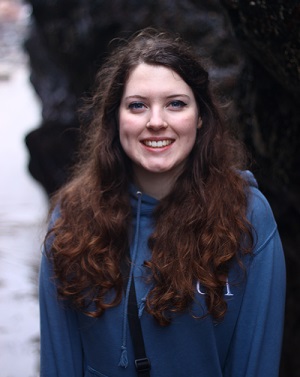August 2017
Why is accessible evidence important?
‘Evidence-based conservation’ and ‘evidence-based policy’ have become buzzwords in the last decade, with a 2004 paper entitled ‘The need for evidence-based conservation’ cited over 1000 times. But within nature conservation, studies have shown that many organisations do not have access to scientific papers, and are working in the dark. Although some conservation organizations produce and use excellent science, we feel that a culture of ‘evidence complacency’ remains in many areas of policy and practice.
The Conservation Evidence Project summarises the scientific evidence on different conservation interventions from all around the world. Our work so far includes the conservation of birds, bees, frogs, forests and many more. We aim to cover all species and habitats in the next few years. Crucially, this information is made available for free, so anyone can read it and see what has worked – and what hasn’t. Our aim is to help break down the barrier between science and practice, so that where relevant science exists, conservation practitioners, managers and policy makers have access to it. The hope is that this will result in better-informed decisions and more effective management actions.
For conservation, developing a rigorous, evidence-based culture similar to that seen in medicine could be a game changer. In medicine, careful tests of treatments showed some routinely used methods were ineffective, or even harmful; and this helped develop the effective medical care we enjoy today. Routinely checking the evidence before starting a project is the conservation model of the future. We think conservation can be as science led, experimental and innovative as medicine.
Who are the Evidence Champions?
Several leading conservation organisations interested in the Conservation Evidence approach have decided to make it a key part of their decision-making and become Evidence Champions. Link member the People’s Trust for Endangered Species, along with the Vincent Wildlife Trust, Froglife, Oryx and the Whitley Fund for Nature, have all pledged to check the scientific evidence on www.conservationevidence.com every time they make a conservation decision. They are also keen to embrace the Conservation Evidence Project’s culture of experimental conservation by testing many of the actions they undertake – and researchers from the University of Cambridge will help them to design scientific studies to see how well their projects have worked, and publish the results so others can learn from their work.
Nida Al-Fulaij, Grants Manager at People's Trust for Endangered Species, is deploying her considerable influence as a funder to spread the evidence-based conservation message. ‘We’ll be asking all our grantees to check the evidence for their proposed projects on the Conservation Evidence website. This will help us to fund the projects with the highest chance of success. We will also be encouraging the conservationists that we fund to test their work and publish it in Conservation Evidence’s journal, so we can be constantly improving conservation science.’
How can your organisation become an Evidence Champion?
Commitment to evidence-based conservation can come in many forms, we welcome discussions with your organisation but here are some suggestions:
• Agree to write the use of Conservation Evidence into decision making systems when undertaking conservation interventions
• Agree to experimentally test and publish interventions
• Ask grantees to check Conservation Evidence in their grant proposal
You can find out more about the initiative here: http://www.conservationevidence.com/content/page/8... and register your interest here: https://goo.gl/forms/DCPxz2BWkVoMLaRO2.
Does your organisation produce reports?
The pursuit for evidence accessibility doesn’t end there. Conservation Evidence is creating a new catalogue collecting conservation reports. Important information about conservation projects is contained in reports. However, these reports aren’t as easy to find as journal articles and can sometimes become almost untraceable ‘ghost’ research. Conservation Evidence are teaming up with organisations such as Scottish Natural Heritage (SNH) and the British Trust for Ornithology (BTO) to systematically search and record important scientific information from reports and make it accessible to practitioners (and other conservation decisions makers) through ConservationEvidence.com.
We welcome your collaboration, if you would like your organisation to be included in our searchable database on our website then please register your interest here.
References
Sutherland, W.J., Pullin, A.S., Dolman, P.M. and Knight, T.M., 2004. The need for evidence-based conservation. Trends in ecology & evolution, 19(6), pp.305-308.
Sutherland, W.J. and Wordley, C.F., 2017. Evidence complacency hampers conservation. Nature Ecology & Evolution, p.1.
Guest blog:
Rebecca Robertson, Research Assistant, University of Cambridge
Claire Wordley, Postdoctoral Research Associate, University of Cambridge
Follow @ConservEvidence and #EvidenceChampions
The opinions expressed in this blog are the author’s and not necessarily those of the wider Link membership.





Latest Blog Posts